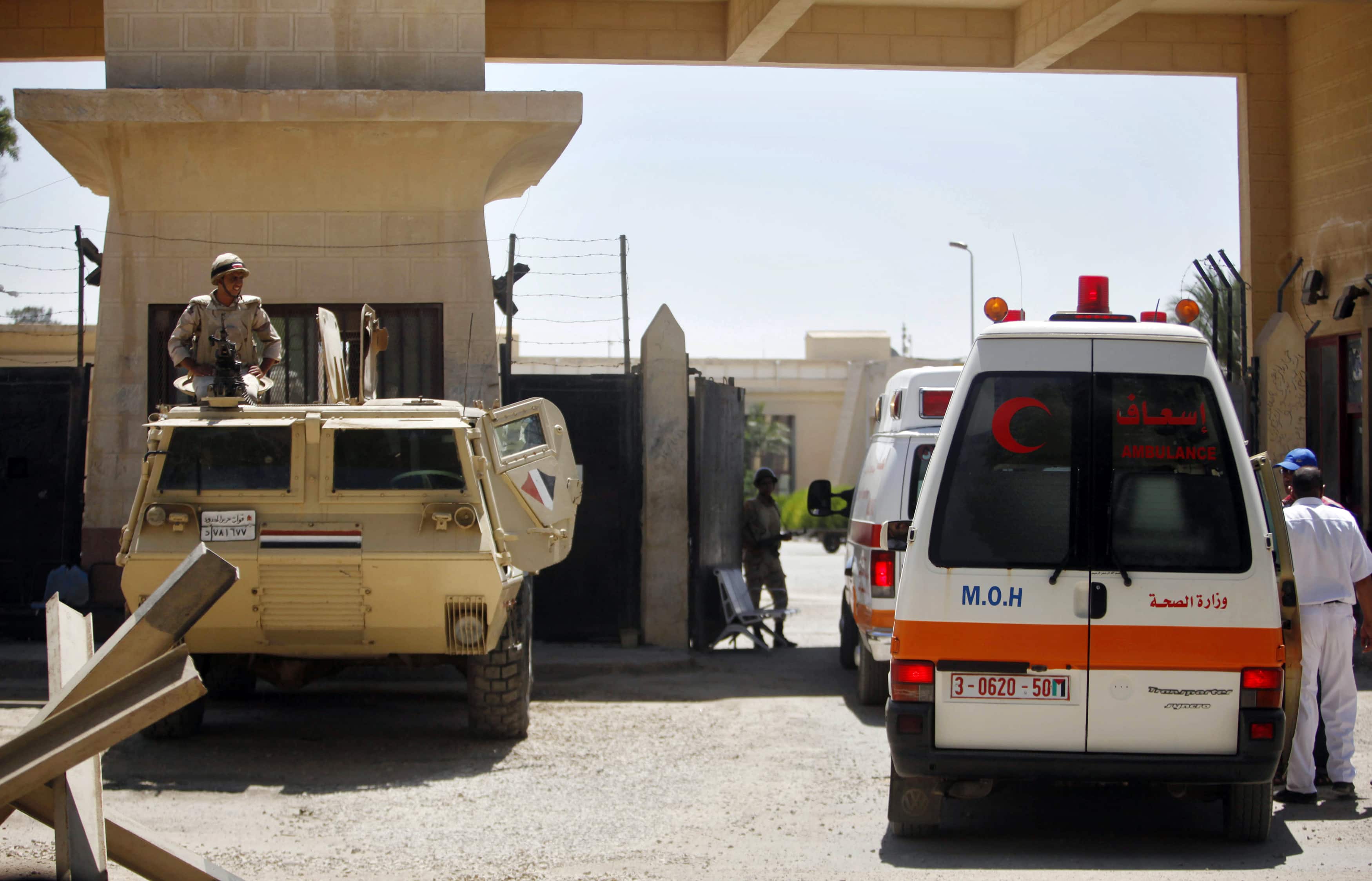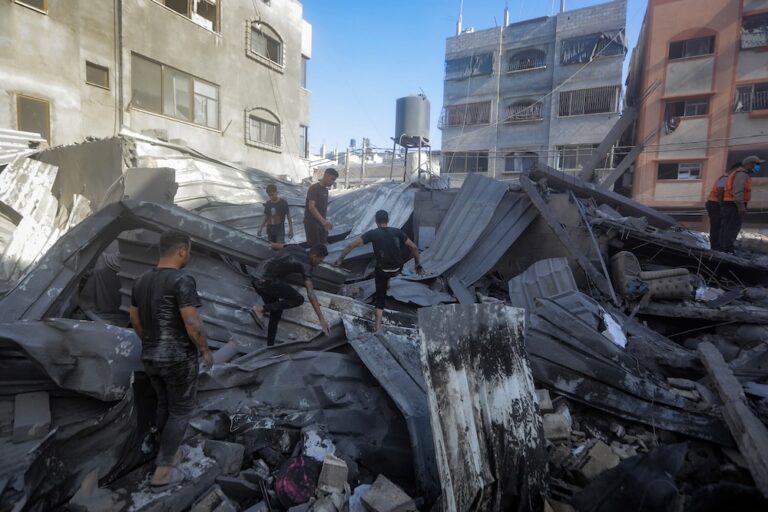As tension mounts, the Egyptian government continues to keep the Rafah border, one of only two crossings that service the Gaza strip, shut making it extraordinarily difficult for journalists to enter the region.
Israeli airstrikes on Gaza in the past week have left a dire situation for residents and for journalists seeking to cover the conflict.
As tension mounts, the Egyptian government continues to keep the Rafah border, one of only two crossings that service the Gaza strip, shut. This makes it extraordinarily difficult for journalists to enter the region and for refugees fleeing the airstrikes to leave.
The International Press Institute (IPI) today strongly urged the Egyptian government to open the Rafah crossing and allow journalists into Gaza so that they can perform their duties without obstruction.
Israeli airstrikes continue to target purported Hamas targets in Gaza while Hamas-fired rockets continue to land in Israel. The recent round of violence erupted after three Israeli teenagers were kidnapped and killed by Hamas militants and after a Palestinian teenager was murdered in Jerusalem in an apparent revenge attack.
IPI contributor Grayson Harbour spoke by email with Egyptian journalist Mohannad Sabry, a contributor to Al-Monitor, about the dangerous conditions that currently exist in Gaza.
IPI: How is the closing of the border crossing in Rafah affecting journalists?
Sabry: Closing the Rafah Crossing Terminal is a multi-pronged crisis for the Gaza Strip when at war. Rafah is one of only two terminals that allow movement of people and private vehicles including ambulances; the second is Israeli-controlled Erez at the north of the Gaza Strip.
Closing the Rafah terminal means that no journalist, injured Gazan or aid convoys will enter or leave the strip, which has been the case except for a dozen injured victims who were allowed in (out of a total of more than 900 injured).
No journalists were allowed, which means that neither local, nor international press can have access to cover the war taking place next door to Egypt.
IPI: Do you have colleagues attempting to leave Palestine without any way to exit?
Sabry: I believe there are at least a couple of hundred injured cases that need urgent care in medical facilities that don’t exist in Gaza, in addition to their families.
On this side of the border, there are at least a couple of dozen people who want to enter the Gaza Strip to be with their families through the crisis, and they are also banned from entering.
IPI: Can you elaborate a little more on the dangers of being a journalist in Gaza right now?
Sabry: Gaza is at a full scale war, the Israeli Air Force announced dropping 400 tons of explosives on Gaza in the past two days, the total area of Gaza is 139 sq miles. It becomes one of the most dangerous places for journalists due to the tight streets and the massive bombardment, not to mention the lack of medical care due to poverty and debilitated infrastructure.
But the biggest danger remains Israel’s indifference when it comes to killing journalists in Gaza. Yesterday’s example is vivid, a car clearly marked ‘TV’ has been hit with an air-surface missile, shredding the body of the driver and injuring the journalist with him.
IPI: What can the government (Palestinian, Egyptian and Israeli) do to assist you in your professional work?
Sabry: The Palestinian Authority is as locked out of the Gaza Strip as I am here in Egypt; they are living in their own bubble in the West Bank. Hamas’ Gaza government is now in underground bunkers hiding until the war is over. So I don’t expect anything from either.
As for the Israeli government, I wouldn’t ask anything from a government that targets media trying to cover the children killed by the same airstrikes, all with impunity.
Which leaves us with Egypt, the Egyptian regime should immediately:
-Open the Rafah Crossing Terminal for journalists from all nationalities to enter the Gaza Strip; it should facilitate their immediate processing of documents given the urgency of the situation.
-Allow an unconditioned crossing into Egypt for all injured Gaza citizens and secure as much ambulances as needed. I understand a little number of cases were allowed entry, but the number is in no way proportionate with the injuries and deaths on the ground.
The Egyptian government should immediately oversee the entry of humanitarian aid to Gaza. I am not asking them to serve activists and independent humanitarian workers, but they should fulfil their duties towards a neighbouring population under attack.
IPI: You mentioned that a colleague was killed in a recent airstrike. Can you elaborate further?
Sabry: This story written by my Al-Monitor colleague who lives in Gaza details the story of the dead TV driver and the injured colleague, with names.



